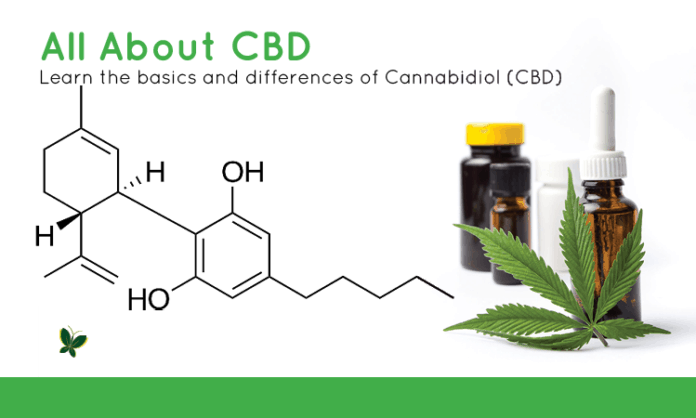Robbin Lynn, MBA, Certified Cannabis Specialist
Owner and Author of The One Minute Cannabist
It’s been nearly a decade since we first experienced Cannabidiol (CBD) rich strains of cannabis grown by pioneer Lawrence Ringo. Back then, we couldn’t give it away. People would buy it and then call us a day or two later telling us it didn’t do anything for them. That’s because they were expecting the usual “high” effect that cannabis rich in THC will induce. As time went on, more and more people found the lingering effects of CBD use had decreased their pain, inflammation and anxiety. They reported an overall sense of calm, focus and wellness. In addition, those who tended toward paranoia with THC, found that it tempered the effects and made their cannabis use more enjoyable.
Fast forward to 2013 when Dr. Sanjay Gupta announced that he was wrong about cannabis and the societal stigma which surrounds it. This was quickly followed by the media coverage of little Charlotte Figi and her seizures and the cannabis strain, Charlotte’s Web, that was named for her. These events launched the CBD discussion and its merits began to be noticed and take hold. Namely that CBD was undoubtedly a powerful analgesic, anti-inflammatory and anti-anxiety remedy, without intoxicating effects.
Today, people are bombarded with advertisements touting the benefits of CBD oils. The trouble is that not all CBD is equal and many people are spending hard-earned money on products with little medicinal value. Ultimately, as with anything we put into our bodies—and especially with products being marketed as CBD oil—it’s vital to know what exactly we are buying, where it’s coming from, and what’s in it.
To fully understand the benefits of CBD, it’s necessary to first recognize the difference between hemp oil, industrial hemp and cannabis. As a society, we use the terms interchangeably, thinking they are one in the same and scientifically, they are the same species. While they may look similar when growing, industrial hemp and cannabis plants are quite different in their phytochemical composition.
www.oneminutecannabist.com
• Hemp oil is derived from seeds and/or stalks of the hemp plant (note to consumers: hemp oil is not CBD oil).
• Industrial Hemp is bred for seed and fiber. It is ideal for making clothing, textiles, paper, biofuel, plastics and more. While it does contain CBD and other compounds, it produces these compounds in much lower concentrations than plants grown for human consumption.
• Cannabis (or Cannabis sativa/Cannabis indica) is rich in cannabinoids, flavonoids and terpenes; CBD being just one of the naturally occurring compounds. Cannabis can be grown to produce high THC levels, high CBD levels or any combinations in between.
o Cannabis with concentrations of THC 0.3% or higher may only be sold in dispensaries.
o Cannabis with concentrations of THC less than 0.3% may be labelled and sold as “hemp” products. We refer to these strains as therapeutic hemp.
o Hemp seed does not contain the compounds found in the hemp or cannabis plant. However, the seeds are very rich in omegas and proteins. From a nutritional perspective, studies have shown hemp seed to have outstanding value for our bodies and the perfect balance of Omega 3 to Omega 6.
Molecule for molecule, Cannabidiol (CBD) derived from hemp or cannabis (aka marijuana) is exactly the same. What’s important to consider when looking to use CBD for medicinal purposes, are the additional compounds found in cannabis grown for human consumption. It is the combination of all compounds such as CBG, THC, CBC and terpenes like beta-caryophyllene that work synergistically to activate our body’s natural endocannabinoid system. This process is commonly referred to as the entourage effect.
Here’s a quick checklist to use when selecting products labelled CBD or Hemp oil:
–Is the main ingredient hemp seed oil or hemp oil? If yes, the product is a nutritional supplement and won’t necessarily help with your medical complaints. Recently a friend showed me a product she purchased online. The ingredients stated it contained 375 milligrams of hemp oil and 15 milligrams of CBD. This means there was only 15mg of CBD in the entire bottle, divide that by 30 doses and you a meager .5mg CBD per ml. It is no small wonder this product did nothing for her complaints.
— Is the main ingredient Cannabidiol (CBD)? If yes, is it derived from industrial hemp or cannabis (therapeutic hemp)? A challenge for consumers today is lack of transparency as to the origins of the hemp-derived CBD. Where and how the hemp is cultivated is critical. Hemp is used for phytoremediation because it absorbs contaminants and toxins from the soil. While this is fantastic for the planet, it’s not such a good thing when looking to put a derivative of the plant into your body. For the safest and healthiest product, look for CBD that is organically grown in the U.S. and ask for the certificate of analysis which will reveal the full chemical composition of the plant used.
If the CBD is cannabis derived, it will most likely have some level of THC, terpenes or other cannabinoids. The level of THC will determine how and where you can purchase these products.
–What other ingredients are in the oil? Do you really need vegetable glycerin, sugars, polysorbates, sodium benzoate or other chemical ingredients if you are taking CBD to feel better or combat disease?
Finally, don’t confuse Cannabidiol (CBD) with cannabinoids. All cannabis plants produce cannabinoids, Cannabidiol (CBD), being one of them. Many people say they want the medicinal kind of marijuana, not the kind that gets you high. All cannabis is medicinal, it is simply the levels of cannabinoids, how it is consumed, and how much of it is consumed that will dictate the level of “high” you may or may not experience.
As you begin your CBD journey, read the labels, ask the tough questions, and just be aware of what is in it and how it makes you feel. Whether its hemp or cannabis derived CBD, when you find the product in the right ratio for you, the natural relief can be extraordinary.
Note: Despite its widespread availability, CBD is still considered a Schedule I substance by the DEA.



















